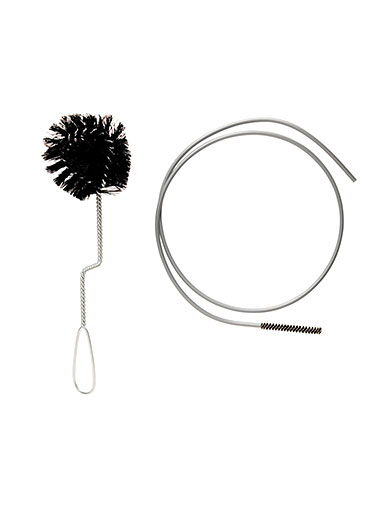There are cleaning kits designed specifically for cleaning hydration packs like Camelbaks:

Camelbak also provides cleaning instructions on their website:
The best way to care for your reservoir is to clean and dry it after
every use, especially if you fill the reservoir with anything other
than water. However, theoretically, if someone didn’t clean it after
every single use, and mold or discoloration happens to develop…
- Use hot water and 2 tablespoons of baking soda or bleach. Mix the solution inside your reservoir and hold it up above your head while
you pinch the bite valve, allowing the bleached water to run through
the tube. You can also use CamelBak Cleaning Tabs.
- Let the reservoir and cleaning solution sit for about 30 minutes. Wash the reservoir with hot water and mild soap. Be sure to
completely rinse away any bleach or cleaning solution before using
again. You can also use CamelBak brushes from our Cleaning Kit to
scrub your reservoir and tube. Brushes are the best way to ensure
you are scrubbing all of the areas of the reservoir clean.
- Once the reservoir is clean, be sure to air dry the reservoir so no moisture is trapped inside, which can cause mold to grow.
These steps will make your reservoir safe for use. If you have spots
left from the mold, they will never come all the way out because the
reservoir is permanently stained, but still safe and usable.
